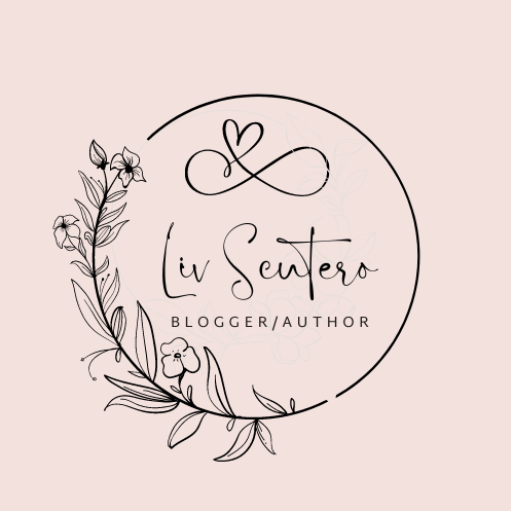Setting Boundaries:A Powerful Recognition of Self-Respect
For a long time, I never really understood the importance of boundaries. I thought being nice meant saying “yes” to everything, making sure I was there for everyone else, and never causing any waves. But over time, I started to realize something: I was being treated like a doormat, and it left me feeling trapped in relationships where I was giving too much and receiving nothing in return.
I’ve always been considered a nice person, and I prided myself on that. I thought that being kind meant people would treat me with the same respect and care I gave them. But the more I bent over backward for others, the more they seemed to step all over me without a second thought. People who I thought were my friends seemed to take advantage of my willingness to be there for them. Slowly, I began to feel this weight pressing down on me—this heavy realization that my kindness was being mistaken for weakness. I wasn’t standing up for myself, and as a result, people walked all over me.
The hardest part? I suffered in silence. I didn’t want to cause trouble or be seen as difficult, so I kept quiet. I tried to be the person everyone needed me to be. But that feeling of being trapped wouldn’t go away. It sat in the pit of my stomach, nagging at me, reminding me that I wasn’t protecting myself. I wasn’t speaking up when I needed to.
It wasn’t until I finally started to vocalize my boundaries that I began to feel a shift in myself. For the first time, I told people “no” without apologizing for it. I let them know what I needed and where I drew the line. And guess what? The reaction wasn’t pretty. I lost a lot of friends—people I thought would be in my life forever. I remember feeling shocked at how quickly people distanced themselves once I stopped being so accommodating.
At first, it hurt. I questioned whether I was doing the right thing. Maybe I was being too harsh? Maybe I should have just kept going with the flow, even if it made me feel small? But deep down, I knew something had to change. I couldn’t keep sacrificing my own well-being for the sake of keeping others comfortable.
That’s when I learned the most important lesson about boundaries: they’re not for other people—they’re for me. Setting boundaries isn’t about punishing someone or pushing them away. It’s about protecting myself, my energy, and my mental space. I needed to stop feeling guilty about putting myself first.
What I came to realize is that the people who left my life when I started setting boundaries weren’t my real friends. If they couldn’t handle me prioritizing my needs, they weren’t really there for me—they were there for what I could do for them. It was a harsh truth, but an important one. Losing them felt like clearing space for healthier, more respectful relationships.
Of course, it wasn’t easy at first. There were moments when I felt incredibly lonely, wondering if I had made a mistake. But in time, I began to see the beauty of what was happening: I was no longer trapped in one-sided relationships. I was free. Free to focus on myself, my growth, and what truly mattered to me.
I learned that boundaries are essential for living a balanced, authentic life. They create the space I need to thrive instead of constantly being drained by people who only take. Setting boundaries is a way of saying, “I value myself enough to protect my peace.” And that’s not selfish—it’s necessary.
It’s not that I suddenly stopped caring for the people in my life. I still believe in being kind and compassionate, but now, I’m also kind to myself. I no longer feel guilty for putting up boundaries to protect my energy. I’ve learned that the people who truly care about me will understand and respect my limits, while those who don’t—well, I no longer need them in my life.
The funny thing is, once I started setting boundaries, I began to notice how much lighter I felt. I didn’t realize how much weight I was carrying by trying to be everything to everyone. Now, I can say “no” without the guilt. I can speak up when something doesn’t feel right, and I can walk away from situations and people who don’t respect me.
I wish I had learned this lesson earlier in life, but I’m grateful to have learned it now. Boundaries are part of growing up and evolving. They’re a way of taking control of your own life and deciding how you want to be treated. And yes, people might get angry when you set them, but that’s their issue to deal with, not yours.
The truth is, I don’t need people in my life who can’t respect me. Losing those “friends” wasn’t a loss at all—it was a gain. I gained clarity, peace, and a sense of freedom that I had never known before. Boundaries aren’t about keeping people out—they’re about letting the right people in, the ones who see you, value you, and respect the person you’ve worked so hard to become.
If you’re feeling trapped in relationships where you’re constantly giving more than you’re receiving, I encourage you to start setting boundaries. It’s not easy, and you might lose people along the way, but trust me when I say that the right people will stay. And those are the ones worth keeping.
https://livscutero.co/f/setting-boundariesa-powerful-recognition-of-self-respect
Setting boundaries
Self-respect and boundaries
Personal growth through boundaries
How to set boundaries
Healthy relationships and boundaries
Importance of boundaries in friendships
Protecting your space
Saying no without guilt
Boundaries and self-care
Emotional boundaries
Learning to set boundaries
Letting go of toxic friendships
Self-respect in relationships
Boundaries for personal growth
Healthy relationships vs. toxic relationships
Empowering yourself with boundaries
